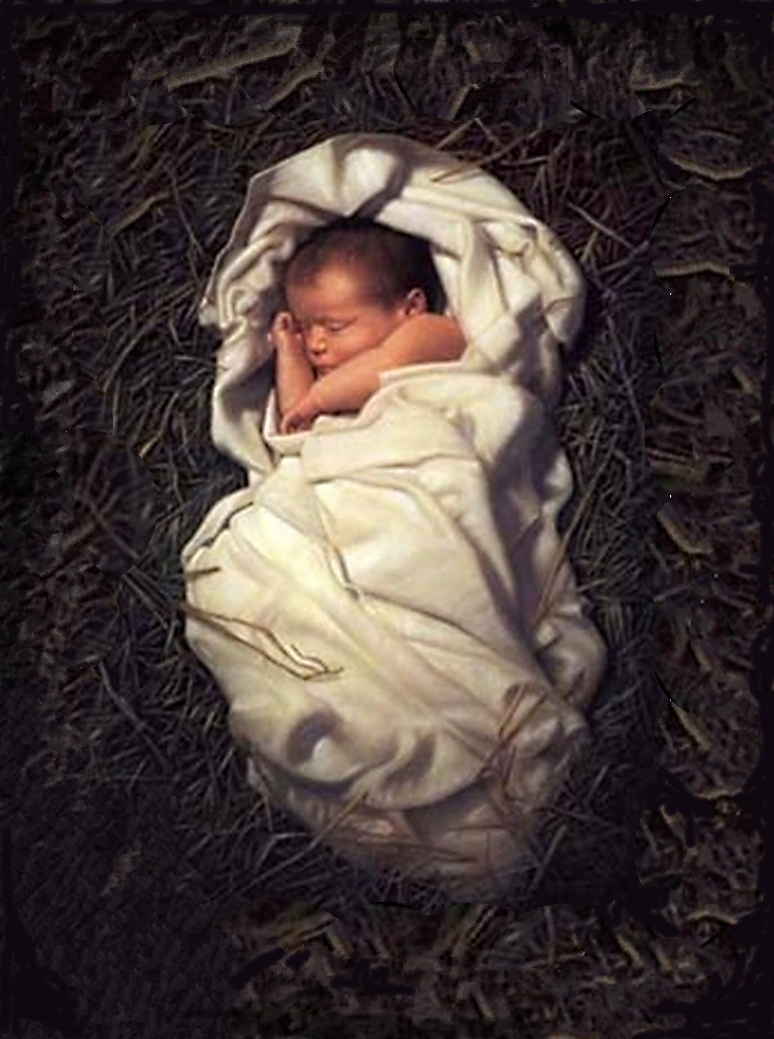How Did He Become The Man He Was? (Part One)
 Monday, July 27, 2015 at 07:00AM
Monday, July 27, 2015 at 07:00AM
 Away in a manger, no crib for a bed,
Away in a manger, no crib for a bed,
The little Lord Jesus laid down his sweet head,
The stars in the sky look down where he lay,
The little Lord Jesus asleep in the hay.
Don’t worry, it’s not Christmas time, but this carol raises an important question to anyone who wants to follow Jesus. The song celebrates the Incarnation, literally, the enfleshment of Jesus, when God Himself became man. It is a powerful carol because any parent remembers well the beauty and mystery of their child asleep in the crib. And everyone can relate to sleeping babies. But . . .
The cattle are lowing, the poor Baby wakes / The little Lord Jesus, no crying He makes . . .
Right here--at the words, “no crying he makes” the song begins to depart from our personal experience. Most mothers would begin to worry about a baby who never cries. What kind of baby was this Jesus? Did he ever cry? What kind of child was the boy Jesus, growing up year after year with Joseph and Mary?
Will you indulge me in some foolishness? This baby Jesus, who is God Incarnate: how did he receive the Magi when they came to worship? Did the infant in the manger invite them in and gesture for them to sit? Did he say, “Please, come in: you must be exhausted from your journey.” Did the newborn baby thank them for their thoughtful gifts?
Or imagine Jesus as a boy learning the family business at his father’s side: the sinless Son of God, perhaps six years old, driving a nail into a board for the very first time. Did he hold the hammer correctly? Did he drive the nail straight and true? Or was he like all children, and gain his skill through experience? When the perfect human being first held a saw and cut a piece of wood, did he cut the board correctly? And if he did not, what does this say of his divinity?
Behind these silly imaginations hide questions for anyone who would become like their Master. If Jesus is our example in both behavior and ministry, how did he become the man he was? If Jesus modeled ministry for us by healing the sick, casting out demons and raising the dead, by what power did he do these things? Indeed, the church has debated these questions for centuries. It is not merely the stuff of theological curiosity—because Jesus called us to be like him in every way.
If Jesus accomplished moral excellence and supernatural ministry exclusively through the privilege of his identity as the Son of God, how can he expect us to follow him? Any serious follower of Jesus should take time to ask: how did Jesus do the things he did? Was he sinless because he had some advantage over you or me? Did he heal the sick or multiply the bread and fish because he had some secret power not open to any of his followers? If Jesus did these things because he was the Boss’s son, isn’t it unfair for him to expect us to become like him?
Luke chapter 4 depicts the very beginning of Jesus ministry--the very first sermon recorded in that Gospel. It is short, and revealing:
He went to Nazareth, where he had been brought up, and on the Sabbath day he went into the synagogue, as was his custom. And he stood up to read. The scroll of the prophet Isaiah was handed to him. Unrolling it, he found the place where it is written:
"The Spirit of the Lord is on me, because he has anointed me to preach good news to the poor. He has sent me to proclaim freedom for the prisoners and recovery of sight for the blind, to release the oppressed, to proclaim the year of the Lord's favor." Then he rolled up the scroll, gave it back to the attendant and sat down. The eyes of everyone in the synagogue were fastened on him, and he began by saying to them, "Today this scripture is fulfilled in your hearing." (Luke 4: 16 - 21)
Jesus selects the passage from Isaiah that begins plainly, “The Spirit of the Lord is upon me.” I think Luke is trying to say that everything that follows in the life and ministry of Jesus flowed from the operation of the Holy Spirit in his life. Luke points out the role of the Holy Spirit in Jesus’ baptism (3:22) and in the 40 days of testing in the wilderness (4:1 & 14). In Luke’s second work, the book of Acts, he quotes the Apostle Peter, who gives a one-sentence summary of the ministry of Jesus:
"You know what has happened throughout Judea, beginning in Galilee after the baptism that John preached -- how God anointed Jesus of Nazareth with the Holy Spirit and power, and how he went around doing good and healing all who were under the power of the devil, because God was with him." (Acts 10: 38-39)
Jesus did what he did by the power of the Holy Spirit, not by virtue of his unique identity as the Son of God. Make no mistake: Jesus is God Himself come to earth. His example for life and ministry, however, is through the Holy Spirit’s empowerment, and that same Spirit is available to his followers. What does that mean for us today?
(Be sure to come back Thursday for part two.)
Why not receive Students of Jesus in your inbox? Subscribe to our email newsletter and never miss a post.



Reader Comments